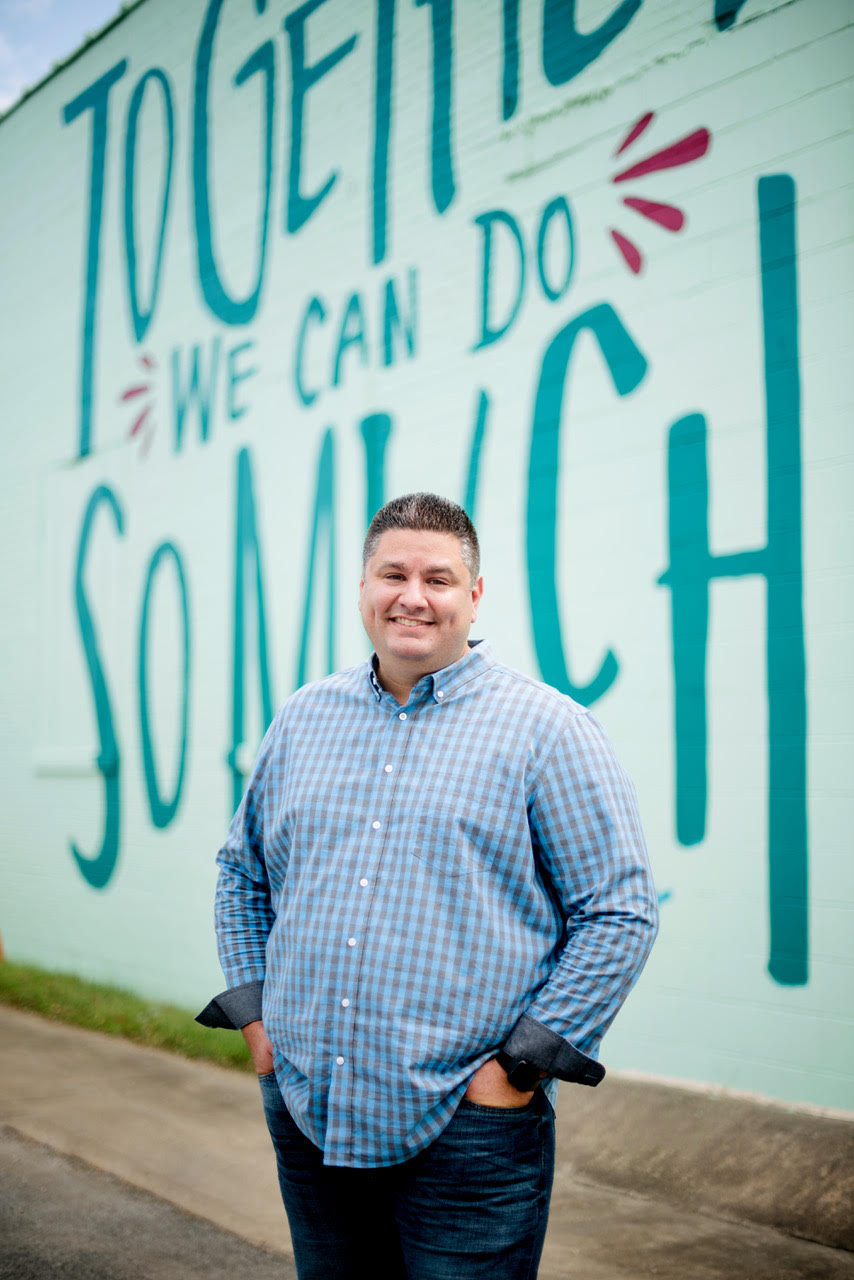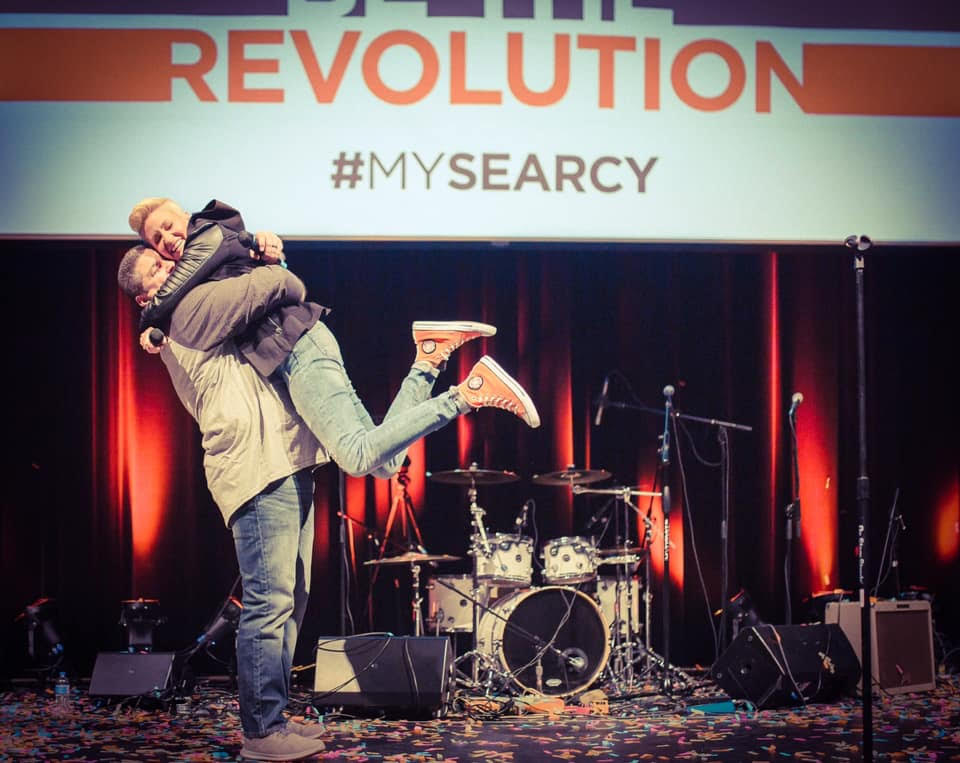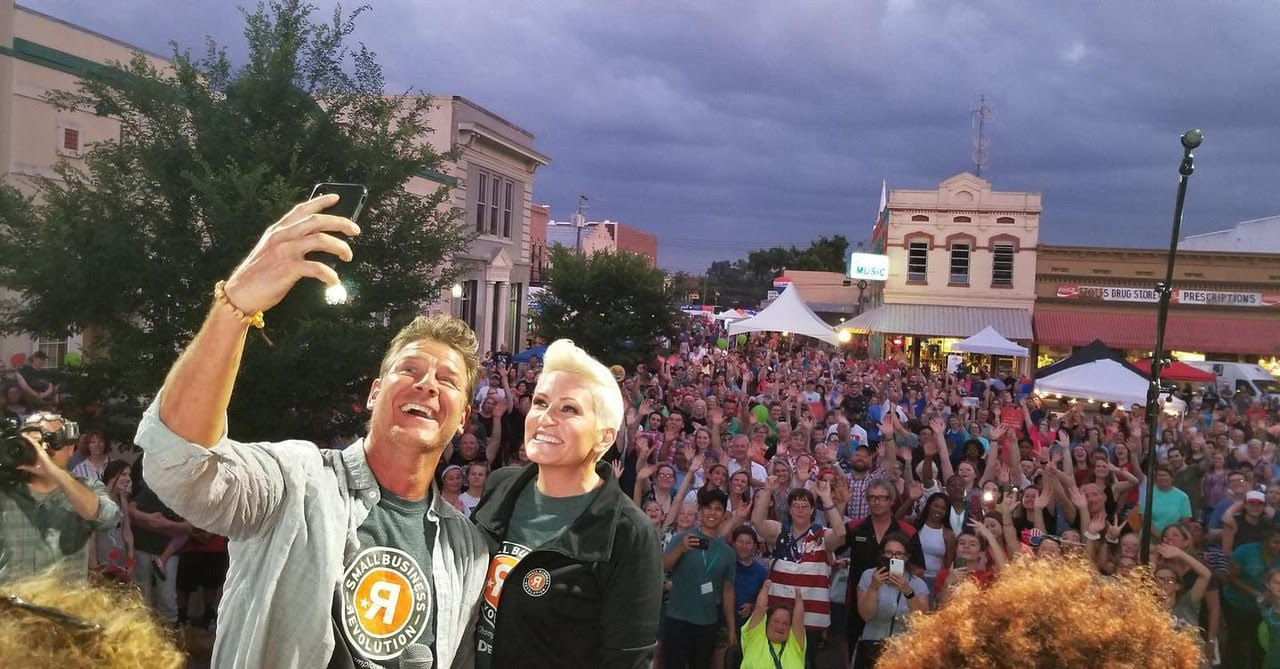How does a community create a culture that inspires entrepreneurship and is supportive of one of the most challenging and risky pursuits in one’s lifetime?

You are likely aware that Searcy rallied to win a national vote to be featured in eight episodes of the hit online show Small Business Revolution co-starring Ty Pennington and Amanda Brinkman. The show’s premise is to help revitalize a town’s Main Street by conducting make-overs for six local small businesses. Deluxe Corporation utilizes the television show platform to market their small business services, which is an example of content marketing at its finest.
The show championed small business owners and the common challenges that most entrepreneurs deal with. Amanda Brinkman, the brainchild behind Small Business Revolution and Deluxe’s chief brand and communications officer, emphasizes how most entrepreneurs start a business because they are skilled at what they “do" but may not be a specialist at wearing all the hats — such as marketing, human resources, legal document drafting, and accounting — needed to run a small business successfully.

Entrepreneurs tend to survive in a steady state of nervous energy: pursuing new sales, retaining employees, juggling costs of benefits versus profitability, upholding quality, maintaining the facility, creating social content, carving out family time, eyeing the competition and keeping up with technology.

So, it is safe to say the first step in creating a conducive entrepreneurial environment is affirmation and encouragement. Entrepreneurs are heroes. They are the backbone of this country and vital to the sustainability and uniqueness of our communities. Owning a business is hard and it can consume most of your mental, physical and emotional energy. It is risky and many business owners leverage personal assets as collateral to get their baby off the ground. The fact that they are doing it (or thinking about doing it) exemplifies a courageous spirit, ingenuity and adaptability.
Encouragement is powerful. Community leaders need to publicly champion entrepreneurs, setting a tone of appreciation and validation. This should be a consistent message that resonates across all community organizations and reinforces that the community is behind those who decide to take the leap. It also cultivates an atmosphere of shared experiences, allowing entrepreneurs to know they are not alone and there are many who empathize with what they deal with on a daily basis.

Along with consistent affirmation and encouragement, entrepreneurs need networks and programs for peer-to-peer information sharing and cross-promotion. Even businesses within the same vertical market can participate in being supportive of each other while still protecting their trade secrets. We were first-hand witnesses to this during the Revolution experience. Restaurants within walking distance were promoting each other and sharing foot traffic. Brinkman coins it as “a rising tide lifts all boats.”
When the community is generally successful, the residual benefits can affect everyone. In a typical competitive environment, businesses keep everything close to the vest and work hard to rise above their competing neighbors. So it may feel unnatural to support a competitor, but we witnessed several business owners lean into cooperation over competition and it didn’t negatively affect their bottom line. On the contrary, it built goodwill, camaraderie and even produced unique co-op opportunities through cross-promotion and shared 'shop local' efforts.

Beyond competitors transitioning to supportive cheerleaders is the initiation of information-sharing groups. Commonly, this comes by the way of Chamber economic development programs. However, communities who are heading in the right direction will also see more grassroots efforts where business owners begin taking it upon themselves to be proactive. For example, an all-women entrepreneurship group recently formed and began meeting monthly at various locations. It is an open forum for women entrepreneurs, facilitated by volunteers and is centered around information-sharing. These organic, less formal groups represent a healthy entrepreneurial community where citizens are taking the time, effort and initiative to better themselves and others.
Searcy is getting a lot of things right and is generating a culture that inspires and supports entrepreneurs. The winning formula is a community that champions its entrepreneurs through encouragement and affirmation, generates opportunities to share both information as well as customers, and consistently communicates all the resources available to them through university and community partners. The Small Business Revolution poured fuel to a fire that was [and still is] burning bright. Entrepreneurs are champions who give communities uniqueness and character. We are fortunate to have had the opportunity to tell a few of their stories on a television show, but there are still so many stories yet to tell.
*For links to the Small Business Revolution episodes and behind-the-scenes photos, visit www.gosearcy.com
Mat Faulkner is founder of Think Idea Studio , president of the board for the Searcy Regional Economic Development Corporation, former chair of the Searcy Regional Chamber of Commerce's Small Business Committee, director of the Think ART Project , co-director for Searcy Beats & Eats festivals, past president for Jacob's Place Homeless Mission , member of Searcy's Beautification Committee and Holiday of Lights Committee, member of Harding University's chapter of Sigma Nu Tau National Entrepreneurship Honor Society, and 2017 member of Arkansas Business' 40 Under 40.
Mat and his wife Shelley have 3 boys: Easton, 14; Lawson, 12; and Jace, 9. The couple renovated the old Robbins-Sanford Mercantile in downtown Searcy, which now serves as an event center and loft studio offices. Faulkner is a Fall 2002 graduate of Harding University with a degree in Communication Management. Recently, Faulkner served as the point person for the Searcy community winning the Small Business Revolution hit online TV show, where six local small businesses received $500,000 in makeovers as well as community improvements.
Have a small business story to tell? The Waldron Center would like to hear from you! Email psummers@harding.edu.